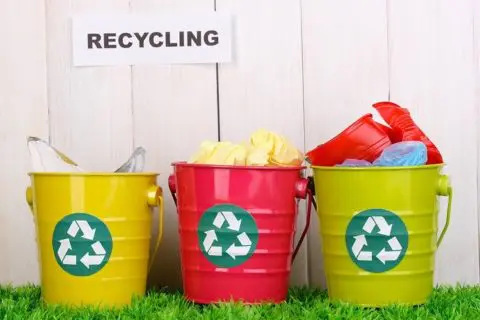By: MooL Raj
In the face of escalating environmental challenges, recycling emerges as a beacon of hope, offering a tangible and impactful way for individuals and communities to contribute to the health of our planet. The concept of recycling extends beyond the act of sorting plastics, paper, and glass; it embodies a collective responsibility to safeguard the Earth’s resources for future generations. As we embark on this journey of conservation, recycling stands out as a powerful tool, saving the Earth one bottle at a time.
The pervasive issue of plastic pollution has thrust recycling into the spotlight as a frontline defense against the ecological damage wrought by single-use plastics. Plastic bottles, once emblematic of convenience, have become symbols of environmental degradation. However, through the simple act of recycling, these vessels transform from potential pollutants into valuable resources. By diverting plastic waste from landfills and incinerators, recycling not only mitigates the visual blight of littered landscapes but also curtails the release of harmful greenhouse gases associated with the decomposition of plastics.
At its core, recycling is a catalyst for the conservation of finite resources. The manufacturing of goods from raw materials exacts a toll on the environment, depleting forests, exhausting energy, and contributing to pollution. Recycling intervenes in this cycle by reintroducing materials into the production stream, reducing the demand for virgin resources. Every recycled bottle, paper, or aluminum can represents a step away from resource depletion, fostering a more sustainable and circular economy.
Furthermore, the environmental benefits of recycling extend beyond the preservation of natural resources. The energy savings achieved through recycling are substantial, as the production of goods from recycled materials typically requires less energy than manufacturing from raw materials. This reduction in energy consumption translates into a diminished carbon footprint, contributing to global efforts to combat climate change. Recycling, therefore, becomes a potent ally in the broader quest for environmental sustainability.
An often overlooked facet of recycling is its role in job creation and economic revitalization. The recycling industry, fueled by the collection, processing, and repurposing of materials, generates employment opportunities at various stages of the recycling chain. From collection and sorting to manufacturing and distribution, recycling breathes life into local economies, offering not just environmental dividends but also socio-economic benefits. By supporting recycling initiatives, communities can simultaneously nurture their environment and foster economic resilience.
While individual actions in recycling hold immense significance, the collaboration of governments, businesses, and communities is essential to amplify the impact. Governments can play a pivotal role by implementing and enforcing robust recycling policies, incentivizing businesses to adopt sustainable practices, and educating the public on the importance of responsible waste management. Businesses, in turn, can embrace eco-friendly packaging, promote recycling initiatives, and integrate circular economy principles into their operations.
As we navigate a world grappling with environmental crises, recycling emerges as a tangible and accessible solution that empowers individuals to be stewards of the planet. It beckons us to reimagine waste not as a burden but as a reservoir of potential. Every recycled bottle represents a commitment to a sustainable future, where the Earth’s resources are cherished and preserved. In saving the Earth one bottle at a time, we embark on a journey that transcends individual actions, creating a collective legacy of responsible environmental stewardship for generations to come.
The author is a columnist and freelance writer


